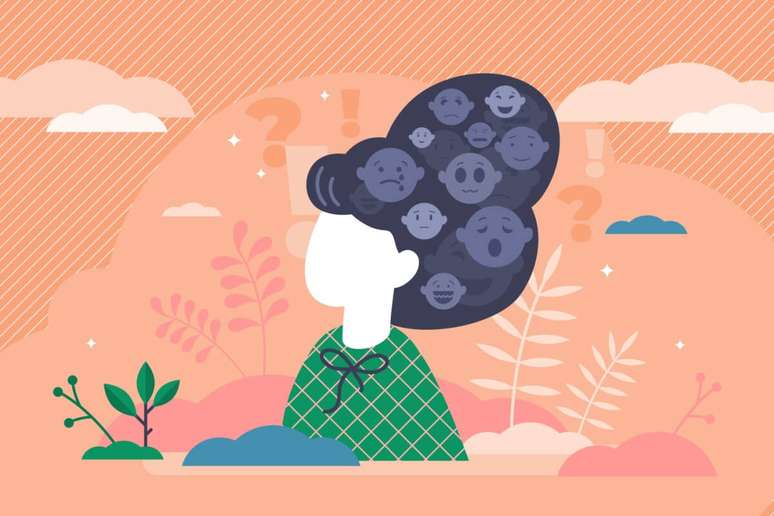The balance of chemicals in the body can affect mental health
Hormones are chemicals produced by the glands of the endocrine system, which act as messengers in the body. They play an important role in regulating emotions, which are an essential part of human behavior. Therefore, hormonal balance is vital to maintaining emotional stability.
“Although many factors influence human behavior, we know that there is a strong hormonal influence. Hormones play a fundamental role in regulating mood, interfering with the functioning of the mind. The nervous system and the endocrine system send electrical or chemical signals throughout the body constantly to regulate different functions, but they also communicate and influence each other,” explains Dr. Deborah Beranger, endocrinologist, with a specialty in Endocrinology and Metabology at the Santa Casa de Misericórdia do Rio de Janeiro (SCMRJ).
Action of hormones in the body
According to the doctor, hormones are substances that act as chemical messengers and are produced by our endocrine system. “Every hormone It has a specific function, influencing development, behavior, and the way we perform daily activities. There are hormones that regulate sleep, others that regulate growth, we also have hormones related to memory, metabolism, cognition, reproduction, and our mood,” he says.
According to Dr. Deborah Beranger, hormones can influence emotions in the brain in both positive and negative ways. “Messengers known as happy hormones, such as endorphins, serotonin, dopamine, and oxytocin, promote a feeling of well-being when released into the bloodstream and can be released under environmental influences, such as when we kiss someone we love, eat chocolate, or exercise. In situations of prolonged stress, cortisol levels are elevated and can become unregulated, triggering bouts of anxiety and long-term depression,” she explains.
Influence the release of hormones
But who influences the hormones? In addition to the environment in which we live, internal issues can also generate scenarios of greater or lesser liberation. “People who are more likely to develop depression, for example, do not have serotonin receptors that work well in their brains,” explains the doctor.
As for environmental factors, the doctor emphasizes that, to take care of hormonal health, good habits help: modulating stress, doing physical activity, sleeping well, eating well and cultivating healthy relationships are factors that help on an endocrine and mental level.

Hormones and emotions
Below, the doctor highlights how each hormone works in its relationship with emotions:
1. Estrogen and progesterone
These two hormones are responsible for secondary sexual characteristics in women and work to control the menstrual cycle. “The changes in these hormones from ovulation to menstruation cause changes in disposition and mood. Hormones always work well in balance: women who have high levels of estrogen feel more anxious and irritable; low levels are more linked to melancholy and bad mood,” explains the endocrinologist.
2. Testosterone
Known as the male hormone, but also present in women, testosterone, when low, can affect the motivation and mood, with the presence of anxiety, according to the doctor.
3. Dopamine
Considered as a neurotransmitter hormone, dopamine is under the tutelage of the endocrine and nervous systems, with a strong relationship with reward mechanisms and the search for pleasure. “When we hear a compliment or have a small victory, our body releases dopamine into the bloodstream, creating a feeling of happiness and satisfaction. Dopamine imbalance can lead to emotional dependence and suffering,” explains Dr. Deborah Beranger.
According to the expert, this hormone has gained a lot of attention currently due to the reward mechanisms that exist on social networks, which have been shown to be addictive, precisely because of the excess stimulation of the release of dopamine that they cause. This ends up generating imbalances, which can culminate in anxiety, envy, a sense of failure and depression.
4. Serotonin
Considered by some authors a hormone and by others a neurotransmitter, serotonin is released through sports and the consumption of foods (bananas, nuts, chocolate and salmon) that increase its synthesis. “Serotonin imbalances are linked to feelings of sadness, boredom and loneliness, as well as anxiety,” says Dr. Deborah Beranger.
5. Cortisol
While cortisol is most immediately associated with stress, it is much more than that. “It is a hormone produced by the adrenal glands (which are above the kidneys) and helps the body manage stress, function of the immune system, regulate metabolism, maintain blood sugar levels and blood pressure,” explains the doctor.
Therefore, according to her, the human body needs a certain level of cortisol to maintain a healthy hormonal balance. “But the current lifestyle is constantly associated with an excessive production of this hormone, which results in chronic and prolonged stress, which is highly harmful,” says Dr. Deborah Beranger, who explains that high levels of this hormone are linked to greater anxiety, anger, and sadness.
6. Adrenaline
As the doctor explains, adrenaline, or epinephrine, is a neurotransmitter hormone that puts us in a state of alert. Whenever we go through a situation of great stress, fear or we feel threatened, our body releases it into the bloodstream. “Its imbalance is linked to so-called panic attacks, characterized by hyperventilation, strong anxiety and fear, which for some people can be so strong that they temporarily paralyze them,” he explains.
7. Melatonin
According to Dr. Deborah Beranger, the sleep hormone helps restore cells, but its imbalance causes insomnia, which can lead to anxiety and mental confusion.
By Paola Amoroso
Source: Terra
Ben Stock is a lifestyle journalist and author at Gossipify. He writes about topics such as health, wellness, travel, food and home decor. He provides practical advice and inspiration to improve well-being, keeps readers up to date with latest lifestyle news and trends, known for his engaging writing style, in-depth analysis and unique perspectives.









